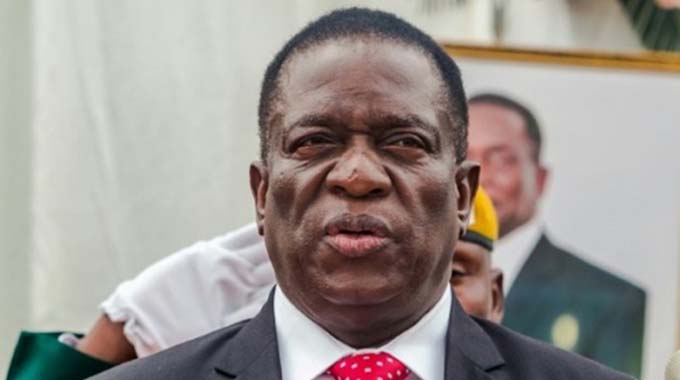Indigenisation: The policy that speaks to Independence

 Nick Mangwana View from the Diaspora
Nick Mangwana View from the Diaspora
Today we celebrate 37 years of Uhuru. A lot of positives have happened over the years and we can’t emphasise enough the need to make our Independence the rallying point of this nation.
It is the ultimate mark of patriotism to gather together with compatriots to mark the birth of one’s nation.
It is also the mark of a patriot to be introspective and reflective with candour. One of the tragedies of our generation is that for all the natural wealth that Africa has, it does not have much to show for it.
Countries with hardly any natural resources are decades ahead in terms of development. A lot of this we can blame on neo-colonialism.
If we take its classical definition, “the use of economic, political, cultural and other pressures to control or influence other countries, especially former colonies” we will be left with no option but to agree that it is ignorance to discount the retrogressive role this continues to play in independent Africa.
This has played a significant role in retarding Africa’s development. But it is not the only factor.
We have had our own situations of poor governance, which has led to loss of revenues from the exploited natural resources. The loss of diamond revenue in Zimbabwe is an undisputed example.
But it is not only Zimbabwe. In fact, when it comes to development, countries with more natural resources have performed more abysmally.
Profits from Africa’s resources are not being used on Africa. Yes, there is corruption and yes there is incompetence. But, more importantly, there are policy issues.
Zimbabwe is one of the few countries that have led the way in trying to solve this problem using policy instruments.
Natural resources can be drivers of the economic progress of our country and our continent at large. We have to strike a balance between accepting the invasion of investors into our natural resources sectors.
Extraction of Africa’s resources did not start today, it has been going on at a commercial scale for over 130 years. That is if we just focus on the minerals and exclude the slaves.
These exploited resources have resulted in far-off capitals being hubs of economic activity while Africa remains a mishmash of hunger, disease and poverty. Africa continues to fail to leverage this wealth endowment.
So it is clear that with independence, Africa should now use its natural resources as a driver to economic development. But that cannot happen if the mindsets of its people do not change.
One of the most nobly intended policies to emerge out of an independent African state is the indigenisation policy, which was led by President Mugabe.
While it experienced a lot of distortions, misinterpretations and misrepresentations along the way, it still remains the singular policy that embraced the relevance of Foreign Direct Investment (FDI) and the need to control the extraction of those resources and make them benefit the locals.
As a punishment, there has been a flight of capital from Zimbabwe but fatally some people that are meant to be the beneficiaries are lampooning the very thing intended for them. But that does not make the policy, especially as clarified lately, bad. It is the policy of Independence.
It is the confusing, inefficient and incompetent implementation of the policy that has led to the policy being demonised and derided.
When the policy was being applied to every sector, it was a problem. But when applied to depleting resources sector, how can it be wrong?
How can it be so wrong that you stop someone from coming to take your mangoes from your orchard just because they have a ladder and you have none? How can it be right that all you should gain from them, as an orchard owner, is that they will employ your son to be the one who goes up that ladder to pick up the mangoes?
So for some small wage you let your mangoes go because your son got some tree climbing employment which helps him with money in the short term but will still need to climb trees for the rest of his life.
However, the scenario can still be changed with the son still employed but 51 out of every 100 mangoes harvested remaining in the family barn to help develop the family homestead and finance the purchase of the family’s own ladder. How can such an approach be considered wrong?
Without doubt, it is in the best interests of the large capital that such a policy fails. The consequences for them in the event of a success will be a disaster.
It is pertinently in their favour that any such endeavour to go for economic independence be nipped in the bud lest other African countries emulate this policy and make it difficult for foreign capital to cheaply exploit African resources.
We had Shabanie and Mashaba Mines. They employed people but when everything was done, what actually is left? Environmental dumps?
Everything that was developed was meant to assist the capitalist and not the Chivi, Charumbira and Chirumanzu communities. When all was said and done these communities have nothing to show for it except that which they managed to do with the paltry wages.
This is where indigenisation in the depleting resources sector makes sense. But for it to work, there is a serious need for competence, honesty and sincerity from the Government and its officers.
How can the same policy that won the hearts and minds of the electorate in 2013 be viewed as a joke or failure? It may be a result of lack of the factors. The corporate world was insincere, the technocrats were incompetent, and some of our top politicians were simply clueless.
As it is, any policy that does not improve the standard of living for our people will not get a buy-in from the said people.
But having said that, a country cannot have a degraded environment and ghost towns as the only legacy of its exploited resources. It is not right. And if it’s not put right this will continue unabated.
Can we really say with a straight face that foreign-owned corporations have voluntarily contributed to local economies? The answer is a resounding no.
So without any question, policy deficiencies need to be addressed. But there is always resistance from those losing privileges.
We may fail to realise the gains of this great policy due to implementation failure. Add to some rent-seeking behaviour by elites and we end up with policy failure.
When people use their positions for the primary effort of lining their pockets instead of making sure the masses benefit from the dividends of independence it is a pervasion.
It should not be our natural position to have an inverse relationship between our natural resources and our development. Like said before, neo-colonialism plays a major role but we should have it in us to work around it.
We have let policies that actualise our Independence become loathed by the people who are meant to benefit from them. Yes, partly it is because of propaganda but also partly because of the way it has been bungled by some politicians.
Every minister that has sat in that portfolio brought their own indigenisation genre and narrative. It became a conflict zone for Government ministers and other quasi-autonomous organisations such as the Reserve Bank of Zimbabwe.
The board that was supposed to spearhead this, like the National Indigenisation and Economic Empowerment Board (NIEEB), went AWOL and it remains so.
But today is Independence Day. We celebrate our Uhuru and what we became. It is, however, not an ego stroking day. We should use it to also reflect on where we are going and what has gone wrong especially to such flagship policies like Indigenisation.
One of the negative things that happened to African countries on attaining independence is that some of them went into a state of perpetual conflict. Not so with peaceful Zimbabwe. Hence there is no justification in the shoddy implementation of such great policies.
One of the most obvious equations in economics is that those countries rich in natural resources should be rich indeed. We cannot be made to believe that the discovery of natural resources in a country is harmful to economic performance.
We cannot also be made to believe that the best way for economic development is to ask foreigners to come and extract and take them away. That’s warped thinking. And when we say foreigners we include even our all-weather friends, the Chinese.
If their presence does not augment our efforts at economic independence then they are also a threat to the realisation of a dream of total independence.
The dream of our Independence is where we will control our resources as a nation for the benefit of all citizenry. It is the realisation of the dream of our people to be able to dream and see the accomplishment of social dreams, now that the political dream is a reality.







Comments